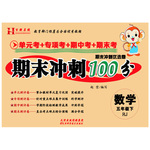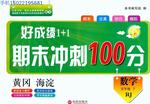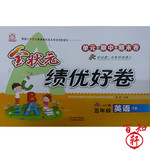题目内容
Mom was right! If you say thank you, for even the smallest gift or slightest show of kindness, you’ll feel happy.
Gratitude, says Robert A. Emmons, a professor or psychology at the University of California, is an important element of happiness. In his recent took, Thanks!, Emmons uses the first major study on gratitude to prove mom’s point. In acknowledging and developing this much-ignored expression of thankfulness, he explains how people have benefited---- even improved their health.
As one of the leading scholars of the positive psychology movement, he admits gratitude may be difficult to express. He advises you to begin by admitting that life is good and full of events and elements that make daily existence a wonder. Second, recognize that the source of life’s goodness is more than just you. That source may be your mom, a friend, partner, child, colleague at work or play, or any combination of these.
Gratitude is always other-directed, notes Emmons. You can be pleased or angry with yourself and feel guilty about doing something wrong, but you can never be grateful to or for yourself.
Expressing gratitude shouldn’t be a reaction; it should be a state of mind. To feel grateful when life is a breeze and you have more than you need is easy. To feel grateful in time of crisis---- anger, hatred and bitterness----is easier. Also, too many people are aware of life’s blessings only after these are lost.
It’s crisis and chaos ---- danger, disease, disability and death ---- that bring many individuals to realize just how dependent they are on others. Yet it’s the way each of us begins life and ends it. It’s too bad that so many people waste those decades in between labouring under the illusion they are self-sufficient, says Emmons.
The abundance of voices expressing gratitude from his studies of individuals with chronic health problems is many. But Emmons goes beyond his “groundbreaking” science to make his case for gratitude by including the inspirational writings of philosophers, novelists and saints, as well as the beliefs of various religions and their respective scriptures. Taken together, these observations are summed up quite nicely by famous humanist Albert Schweitzer, who said the secret of life is “giving thanks for everything.”
To enable and embrace gratitude, Emmons encourages the readers of Thanks! To keep a gratitude diary. He even provides easy-to-follow directions on how to practice and develop gratitude.
I’m not a reader or advocate of self-help books, but I am thankful for the reference I found in a newspaper article to the research Emmons was conducting on gratitude involving organ donors and recipients. The chance discovery led me to this book.
Mom implied that kindness seems to find its way back to the giver because life really is all about giving, receiving and repaying. So I’ll pay attention to her professional advice and say: Thank you, professor Emmons.
小题1:What is the text mainly discussed?
小题2:The author mentions Robert A. Emmons’ book Thanks! In order to prove that ___.
A. Professor Emmons supports mom’s study on psychology.
B. mom is as great a psychologist as Professor Emmons.
C. Professor Emmons is a famous psychologist.
D. mom is right about her viewpoint on gratitude.
小题3:It will be easier for you to feel grateful when ___________.
小题4:What is the opinion of Professor Emmons?
小题5:In the writer’s opinion, Emmons’ book Thanks! On gratitude is _______.
Gratitude, says Robert A. Emmons, a professor or psychology at the University of California, is an important element of happiness. In his recent took, Thanks!, Emmons uses the first major study on gratitude to prove mom’s point. In acknowledging and developing this much-ignored expression of thankfulness, he explains how people have benefited---- even improved their health.
As one of the leading scholars of the positive psychology movement, he admits gratitude may be difficult to express. He advises you to begin by admitting that life is good and full of events and elements that make daily existence a wonder. Second, recognize that the source of life’s goodness is more than just you. That source may be your mom, a friend, partner, child, colleague at work or play, or any combination of these.
Gratitude is always other-directed, notes Emmons. You can be pleased or angry with yourself and feel guilty about doing something wrong, but you can never be grateful to or for yourself.
Expressing gratitude shouldn’t be a reaction; it should be a state of mind. To feel grateful when life is a breeze and you have more than you need is easy. To feel grateful in time of crisis---- anger, hatred and bitterness----is easier. Also, too many people are aware of life’s blessings only after these are lost.
It’s crisis and chaos ---- danger, disease, disability and death ---- that bring many individuals to realize just how dependent they are on others. Yet it’s the way each of us begins life and ends it. It’s too bad that so many people waste those decades in between labouring under the illusion they are self-sufficient, says Emmons.
The abundance of voices expressing gratitude from his studies of individuals with chronic health problems is many. But Emmons goes beyond his “groundbreaking” science to make his case for gratitude by including the inspirational writings of philosophers, novelists and saints, as well as the beliefs of various religions and their respective scriptures. Taken together, these observations are summed up quite nicely by famous humanist Albert Schweitzer, who said the secret of life is “giving thanks for everything.”
To enable and embrace gratitude, Emmons encourages the readers of Thanks! To keep a gratitude diary. He even provides easy-to-follow directions on how to practice and develop gratitude.
I’m not a reader or advocate of self-help books, but I am thankful for the reference I found in a newspaper article to the research Emmons was conducting on gratitude involving organ donors and recipients. The chance discovery led me to this book.
Mom implied that kindness seems to find its way back to the giver because life really is all about giving, receiving and repaying. So I’ll pay attention to her professional advice and say: Thank you, professor Emmons.
小题1:What is the text mainly discussed?
| A.There are many ways of being thankful. |
| B.Gratitude is important to happiness. |
| C.Mom is great for her being thankful. |
| D.Being thankful will keep you fit. |
A. Professor Emmons supports mom’s study on psychology.
B. mom is as great a psychologist as Professor Emmons.
C. Professor Emmons is a famous psychologist.
D. mom is right about her viewpoint on gratitude.
小题3:It will be easier for you to feel grateful when ___________.
| A.you live a comfortable life |
| B.you receive gifts on your birthday |
| C.you get help during your hard times |
| D.you are congratulated on your success |
| A.It is enough to thank others orally. |
| B.Whether you are thankful is always up to you. |
| C.Remember to be thankful anytime and anywhere. |
| D.It is easier to be thankful for yourself than for others. |
| A.one-sided | B.reasonable | C.puzzling | D.helpful |
小题1:B
小题2:D
小题3:C
小题4:C
小题5:D
文章介绍了Emmons教授的一本书《Thanks》,并介绍了其中的主要观点,要对生活的一切都持有感激之心,我们才能真正的快乐起来。
小题1:B 主旨大意题。根据文章的第二段Gratitude, says Robert A. Emmons, a professor or psychology at the University of California, is an important element of happiness.可知文章讨论的是Gratitude是幸福的而一个重要元素,故B正确。
小题2:D 细节题。根据文章第二段第2,3行In his recent took, Thanks!, Emmons uses the first major study on gratitude to prove mom’s point.可知作者提出这本书正是想证明妈妈的观点是正确的,故D正确。
小题3:C 细节题。根据第五段2,3行To feel grateful in time of crisis---- anger, hatred and bitterness----is easier.可知C正确。
小题4:C 推理题。根据文章倒数第四段Taken together, these observations are summed up quite nicely by famous humanist Albert Schweitzer, who said the secret of life is “giving thanks for everything.”可知我们要为任何事情表达出我们的感激之情,无论在什么地方,或者什么时候。
小题5:D 推理题。根据文章最后一句I’ll pay attention to her professional advice and say: Thank you, professor Emmons。可知作者很感激Emmons,认为他的建议是很有帮助的,故D正确。
小题1:B 主旨大意题。根据文章的第二段Gratitude, says Robert A. Emmons, a professor or psychology at the University of California, is an important element of happiness.可知文章讨论的是Gratitude是幸福的而一个重要元素,故B正确。
小题2:D 细节题。根据文章第二段第2,3行In his recent took, Thanks!, Emmons uses the first major study on gratitude to prove mom’s point.可知作者提出这本书正是想证明妈妈的观点是正确的,故D正确。
小题3:C 细节题。根据第五段2,3行To feel grateful in time of crisis---- anger, hatred and bitterness----is easier.可知C正确。
小题4:C 推理题。根据文章倒数第四段Taken together, these observations are summed up quite nicely by famous humanist Albert Schweitzer, who said the secret of life is “giving thanks for everything.”可知我们要为任何事情表达出我们的感激之情,无论在什么地方,或者什么时候。
小题5:D 推理题。根据文章最后一句I’ll pay attention to her professional advice and say: Thank you, professor Emmons。可知作者很感激Emmons,认为他的建议是很有帮助的,故D正确。

练习册系列答案
 99加1领先期末特训卷系列答案
99加1领先期末特训卷系列答案 百强名校期末冲刺100分系列答案
百强名校期末冲刺100分系列答案 好成绩1加1期末冲刺100分系列答案
好成绩1加1期末冲刺100分系列答案 金状元绩优好卷系列答案
金状元绩优好卷系列答案
相关题目